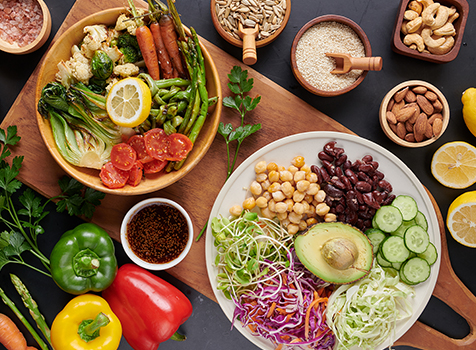Jaundice is a condition characterized by the yellowing of the skin and eyes due to elevated levels of bilirubin in the blood. While medical intervention is crucial in treating jaundice, a proper diet can play a supportive role in recovery. A well-balanced diet can aid liver function, promote detoxification, and provide essential nutrients for overall health. In this article, we will explore the foods that should be included in a jaundice diet and the ones that should be avoided.
Table of Contents
Foods to Eat
Fresh Fruits and Vegetables:
Include a variety of fresh fruits and vegetables in your diet. They are rich in vitamins, minerals, antioxidants, and fiber. Opt for fruits like apples, pears, grapes, and oranges, as they are gentle on the liver and promote detoxification. Leafy greens such as spinach, kale, and broccoli are excellent choices due to their high nutrient content.
Whole Grains:
Choose whole grains like brown rice, quinoa, oats, and whole wheat bread instead of refined grains. Whole grains provide fiber, B vitamins, and minerals, which are essential for a healthy liver. They also help in maintaining stable blood sugar levels.
Lean Proteins:
Opt for lean sources of protein such as skinless poultry, fish, tofu, and legumes. Proteins are necessary for tissue repair and immune function. However, avoid high-fat meats and fried foods, as they can strain the liver.
Healthy Fats:
Incorporate healthy fats into your diet, such as avocados, nuts, seeds, and olive oil. These fats provide essential fatty acids and support the absorption of fat-soluble vitamins. However, moderation is key, as excessive fat intake can burden the liver.
Herbal Teas:
Certain herbal teas, such as dandelion root tea and milk thistle tea, have shown potential benefits for liver health. They can aid digestion, promote bile flow, and possess antioxidant properties. However, consult with a healthcare professional before consuming herbal teas, as they may interact with medications.
Foods to Avoid
Alcohol:
Alcohol consumption should be strictly avoided during jaundice, as it can worsen liver damage. Alcohol places additional stress on the liver and interferes with its ability to process bilirubin effectively.
Fatty and Fried Foods:
High-fat foods like fried foods, processed snacks, and fatty meats should be avoided as they can exacerbate liver inflammation and hinder the detoxification process. Opt for healthier cooking methods such as baking, grilling, or steaming.
Sugary and Processed Foods:
Minimize your intake of sugary and processed foods, including soda, pastries, candies, and processed snacks. These foods burden the liver, contribute to weight gain, and may increase inflammation.
Caffeine and Carbonated Drinks:
Limit your consumption of caffeinated beverages like coffee and energy drinks, as they can cause dehydration and place additional stress on the liver. Also, avoid carbonated drinks, as they can lead to bloating and discomfort.
Spicy and Oily Foods:
Spicy and oily foods can irritate the digestive system and worsen symptoms in individuals with jaundice. Avoid excessive use of spices, chili peppers, and greasy foods.
Conclusion
While a healthy diet cannot cure jaundice on its own, it can support the liver and aid in recovery. Incorporating fresh fruits, vegetables, whole grains, lean proteins, and healthy fats can provide essential nutrients and promote liver health. On the other hand, it is crucial to avoid alcohol, fatty and fried foods, sugary and processed foods, caffeine, carbonated drinks, and spicy and oily foods. It is always recommended to consult with a healthcare professional or a registered dietitian to develop a personalized diet plan that suits individual needs during jaundice.

